424 low relevance results shown for 'for'. Prev |1|2|3|4|5|6|7|8|9|10|11|12|13|14|15|16|17 | Next | View 100 per page
Showing low relevance matches only. Return to normal search results
Forces and Moving - The way objects move depends on a variety of factors including their size and shape ACSSU031 Year 2 Chemical Sciences
Materials - Different materials can be combined, including by mixing, for a particular purpose ACSSU033 Year 2 Physical Sciences
Forces and Moving - A push or a pull affects how an object moves or changes shape ACSSU076 Year 4 Physical Sciences
Forces and Moving - Forces can be exerted by one object on another through direct contact or from a distance ACSSU080 Year 5 Physical Sciences
Light and Sound - Light from a source forms shadows and can be absorbed, reflected and refracted ACSSU097 Year 6 Physical Sciences
Electrical Circuits - Electrical energy can be transferred and transformed in electrical circuits and can be generated from a range of sources ACSSU117 Year 7 Physical Sciences
Forces and Machines - Change to an object’s motion is caused by unbalanced forces, including Earth’s gravitational attraction, acting on the object ACSSU153 Year 8 Earth and Space Sciences
Rocks and Minerals - Sedimentary, igneous and metamorphic rocks contain minerals and are formed by processes that occur within Earth over a variety of timescales ACSSU155 Year 8 Physical Sciences
Energy Forms - Energy appears in different forms, including movement (kinetic energy), heat and potential energy, and energy transformations and transfers cause change within systems ACSSU178 Year 9 Chemical Sciences
Chemical Reactions - Chemical reactions involve rearranging atoms to form new substances; during a chemical reaction mass is not created or destroyed ACSSU225 Year 8 Chemical Sciences
Chemical Reactions - Chemical change involves substances reacting to form new substances ACSSU190 Year 10 Physical Sciences
Energy Conservation - Energy conservation in a system can be explained by describing energy transfers and transformations ACSSU229 Year 10 Physical Sciences
Forces and Motion - The motion of objects can be described and predicted using the laws of physics ACSBL029 Year 11 Biodiversity and the interconnectedness of life
Ecosystem dynamics - Models of ecosystem interactions (for example, food webs, successional models) can be used to predict the impact of change and are based on interpretation of and extrapolation from sample data (for example, data derived from ecosystem surveying techniques ACSBL115 Year 12 Maintaining the internal environment
Homeostasis - Animals, whether osmo-regulators or osmo-conformers, and plants, have various mechanisms to maintain water balance that involve structural features, and behavioural, physiological and homeostatic responses ACSCH018 Year 11 Chemical fundamentals
Properties and structure of atoms - Atoms can be modelled as a nucleus surrounded by electrons in distinct energy levels, held together by electrostatic forces of attraction between the nucleus and electrons; atoms can be represented using electron shell diagrams (all electron shells or val ACSCH025 Year 11 Chemical fundamentals
Properties and structure of materials - Materials are either pure substances with distinct measurable properties (for example, melting and boiling point, reactivity, strength, density) or mixtures with properties dependent on the identity and relative amounts of the substances that make up the ACSCH030 Year 11 Chemical fundamentals
Properties and structure of materials - Ions are atoms or groups of atoms that are electrically charged due to an imbalance in the number of electrons and protons; ions are represented by formulae which include the number of constituent atoms and the charge of the ion (for example, O2–, SO42–) ACSCH032 Year 11 Chemical fundamentals
Properties and structure of materials - The characteristic properties of metals (for example, malleability, thermal conductivity, electrical conductivity) are explained by modelling metallic bonding as a regular arrangement of positive ions (cations) made stable by electrostatic forces of attra ACSCH036 Year 11 Chemical fundamentals
Chemical reactions - All chemical reactions involve the creation of new substances and associated energy transformations, commonly observable as changes in the temperature of the surroundings and/or the emission of light ACSCH037 Year 11 Chemical fundamentals
Chemical reactions - Endothermic and exothermic reactions can be explained in terms of the Law of Conservation of Energy and the breaking and reforming of bonds; heat energy released or absorbed can be represented in thermochemical equations ACSCH039 Year 11 Chemical fundamentals
Chemical reactions - A mole is a precisely defined quantity of matter equal to Avogadro’s number of particles; the mole concept and the Law of Conservation of Mass can be used to calculate the mass of reactants and products in a chemical reaction ACSCH056 Year 11 Molecular interactions and reactions
Intermolecular forces and gases - The shapes of molecules can be explained and predicted using three dimensional representations of electrons as charge clouds and using valence shell electron pair repulsion (VSEPR) theory ACSCH059 Year 11 Molecular interactions and reactions
Intermolecular forces and gases - Data from chromatography techniques (for example, thin layer, gas and highperformance liquid chromatography) can be used to determine the composition and purity of substances; the separation of the components is caused by the variation of strength of the ACSCH060 Year 11 Molecular interactions and reactions
Intermolecular forces and gases - The behaviour of gases, including the qualitative relationships between pressure, temperature and volume, can be explained using kinetic theory ACSCH065 Year 11 Molecular interactions and reactions
Aqueous solutions and acidity - The solubility of substances in water, including ionic and molecular substances, can be explained by the intermolecular forces between species in the substances and water molecules, and is affected by changes in temperature ACSCH069 Year 11 Molecular interactions and reactions
Rates of chemical reactions - The rate of chemical reactions can be quantified by measuring the rate of formation of products or the depletion of reactants ACSCH101 Year 12 Equilibrium acids and redox reactions
Chemical equilibrium systems - Acidbase indicators are weak acids or bases where the acidic form is of a different colour to the basic form ACSCH131 Year 12 Structure synthesis and design
Chemical synthesis and design - Chemical synthesis involves the selection of particular reagents to form a product with specific properties (for example, pharmaceuticals, fuels, cosmetics, cleaning products) ACSPH039 Year 11 Thermal nuclear and electrical physics
Electrical circuits - Energy is conserved in the energy transfers and transformations that occur in an electrical circuit ACSPH042 Year 11 Thermal nuclear and electrical physics
Electrical circuits - Power is the rate at which energy is transformed by a circuit component; power enables quantitative analysis of energy transformations in the circuit ACSPH043 Year 11 Thermal nuclear and electrical physics
Electrical circuits - Resistance for ohmic and nonohmic components is defined as the ratio of potential difference across the component to the current in the component ACSPH060 Year 11 Linear Motion and Waves
Linear motion and force - Uniformly accelerated motion is described in terms of relationships between measurable scalar and vector quantities, including displacement, speed, velocity and acceleration ACSPH061 Year 11 Linear Motion and Waves
Linear motion and force - Representations, including graphs and vectors, and/or equations of motion, can be used qualitatively and quantitatively to describe and predict linear motion ACSPH062 Year 11 Linear Motion and Waves
Linear motion and force - Vertical motion is analysed by assuming the acceleration due to gravity is constant near Earth’s surface ACSPH063 Year 11 Linear Motion and Waves
Linear motion and force - Newton’s Three Laws of Motion describe the relationship between the force or forces acting on an object, modelled as a point mass, and the motion of the object due to the application of the force or forces ACSPH064 Year 11 Linear Motion and Waves
Linear motion and force - Momentum is a property of moving objects; it is conserved in a closed system and may be transferred from one object to another when a force acts over a time interval ACSPH065 Year 11 Linear Motion and Waves
Linear motion and force - Energy is conserved in isolated systems and is transferred from one object to another when a force is applied over a distance; this causes work to be done and changes to kinetic and/or potential energy of objects ACSPH066 Year 11 Linear Motion and Waves
Linear motion and force - Collisions may be elastic and inelastic; kinetic energy is conserved in elastic collisions ACSPH072 Year 11 Linear Motion and Waves
Waves - The superposition of waves in a medium may lead to the formation of standing waves and interference phenomena, including standing waves in pipes and on stretched strings ACSPH102 Year 12 Gravity and electromagnetism
Electromagnetism - Electrostatically charged objects exert a force upon one another; the magnitude of this force can be calculated using Coulomb’s Law ACSPH110 Year 12 Gravity and electromagnetism
Electromagnetism - A changing magnetic flux induces a potential difference; this process of electromagnetic induction is used in stepup and stepdown transformers, DC and AC generators, and AC induction motors ACSBL053 Year 11 Biodiversity and the interconnectedness of life
Ecosystem dynamics - Cellular respiration is a biochemical process that occurs in different locations in the cytosol and mitochondria and metabolises organic compounds, aerobically or anaerobically, to release useable energy in the form of ATP; the overall process can be repr ACSPH108 Year 12 Gravity and electromagnetism
Electromagnetism - Magnets, magnetic materials, moving charges and currentcarrying wires experience a force in a magnetic field; this force is utilised in DC electric motors ACSPH021 Year 11 Thermal nuclear and electrical physics
Heating processes - Change of state involves internal energy changes to form or break bonds between atoms or molecules; latent heat is the energy required to be added to or removed from a system to change the state of the system ACSPH100 Year 12 Gravity and electromagnetism
Gravity and motion - When an object experiences a net force of constant magnitude perpendicular to its velocity, it will undergo uniform circular motion, including circular motion on a horizontal plane and around a banked track ACSCH031 Year 11 Chemical fundamentals
Properties and structure of materials - The properties of ionic compounds (for example, high melting point, brittleness, ability to conduct electricity when liquid or in solution) are explained by modelling ionic bonding as ions arranged in a crystalline lattice structure with forces of attract ACSCH137 Year 12 Structure synthesis and design
Chemical synthesis and design - Fuels (for example, biodiesel, ethanol, hydrogen) can be synthesised from organic or inorganic sources using a range of chemical reactions including addition, oxidation and esterification ACSPH075 Year 11 Linear Motion and Waves
Waves - A ray model of light may be used to describe reflection, refraction and image formation from lenses and mirrors ACSPH077 Year 11 Linear Motion and Waves
Waves - The speed of light is finite and many orders of magnitude greater than the speed of mechanical waves (for example, sound and water waves); its intensity decreases in an inverse square relationship with distance from a point source ACSPH098 Year 12 Gravity and electromagnetism
Gravity and motion - The vector nature of the gravitational force can be used to analyse motion on inclined planes by considering the components of the gravitational force (that is, weight) parallel and perpendicular to the plane ACSPH103 Year 12 Gravity and electromagnetism
Electromagnetism - A positively charged body placed in an electric field will experience a force in the direction of the field; the strength of the electric field is defined as the force per unit charge ACSPH104 Year 12 Gravity and electromagnetism
Electromagnetism - Point charges and charged objects produce an electric field in the space that surrounds them; field theory attributes the electrostatic force on a point charge or charged body to the presence of an electric field ACSPH105 Year 12 Gravity and electromagnetism
Electromagnetism - When a charged body moves or is moved from one point to another in an electric field and its potential energy changes, work is done on or by the field
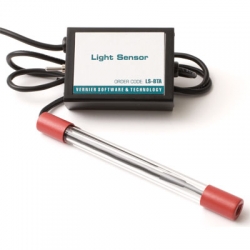
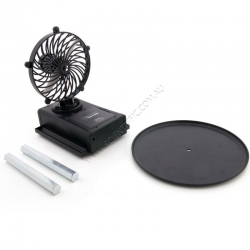
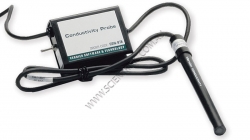

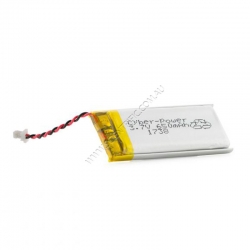



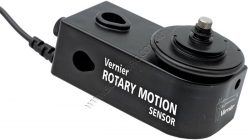
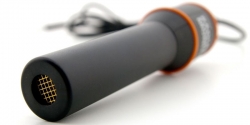



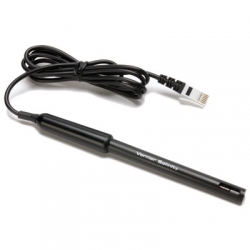
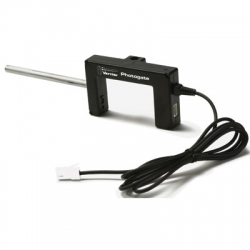



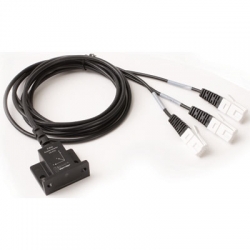
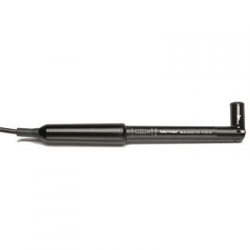

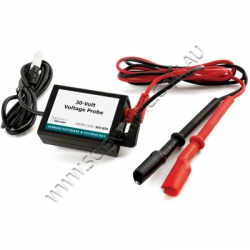

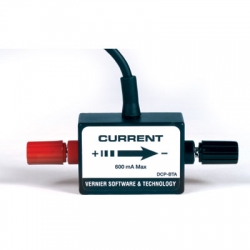
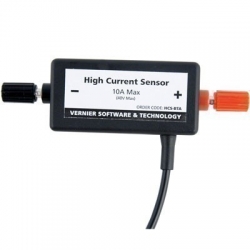
424 low relevance results shown for 'for'. Prev |1|2|3|4|5|6|7|8|9|10|11|12|13|14|15|16|17 | Next | View 100 per page
Showing low relevance matches only. Return to normal search results
Curriculum resources related to 'for'
ACSSU005 Foundation Physical SciencesForces and Moving - The way objects move depends on a variety of factors including their size and shape ACSSU031 Year 2 Chemical Sciences
Materials - Different materials can be combined, including by mixing, for a particular purpose ACSSU033 Year 2 Physical Sciences
Forces and Moving - A push or a pull affects how an object moves or changes shape ACSSU076 Year 4 Physical Sciences
Forces and Moving - Forces can be exerted by one object on another through direct contact or from a distance ACSSU080 Year 5 Physical Sciences
Light and Sound - Light from a source forms shadows and can be absorbed, reflected and refracted ACSSU097 Year 6 Physical Sciences
Electrical Circuits - Electrical energy can be transferred and transformed in electrical circuits and can be generated from a range of sources ACSSU117 Year 7 Physical Sciences
Forces and Machines - Change to an object’s motion is caused by unbalanced forces, including Earth’s gravitational attraction, acting on the object ACSSU153 Year 8 Earth and Space Sciences
Rocks and Minerals - Sedimentary, igneous and metamorphic rocks contain minerals and are formed by processes that occur within Earth over a variety of timescales ACSSU155 Year 8 Physical Sciences
Energy Forms - Energy appears in different forms, including movement (kinetic energy), heat and potential energy, and energy transformations and transfers cause change within systems ACSSU178 Year 9 Chemical Sciences
Chemical Reactions - Chemical reactions involve rearranging atoms to form new substances; during a chemical reaction mass is not created or destroyed ACSSU225 Year 8 Chemical Sciences
Chemical Reactions - Chemical change involves substances reacting to form new substances ACSSU190 Year 10 Physical Sciences
Energy Conservation - Energy conservation in a system can be explained by describing energy transfers and transformations ACSSU229 Year 10 Physical Sciences
Forces and Motion - The motion of objects can be described and predicted using the laws of physics ACSBL029 Year 11 Biodiversity and the interconnectedness of life
Ecosystem dynamics - Models of ecosystem interactions (for example, food webs, successional models) can be used to predict the impact of change and are based on interpretation of and extrapolation from sample data (for example, data derived from ecosystem surveying techniques ACSBL115 Year 12 Maintaining the internal environment
Homeostasis - Animals, whether osmo-regulators or osmo-conformers, and plants, have various mechanisms to maintain water balance that involve structural features, and behavioural, physiological and homeostatic responses ACSCH018 Year 11 Chemical fundamentals
Properties and structure of atoms - Atoms can be modelled as a nucleus surrounded by electrons in distinct energy levels, held together by electrostatic forces of attraction between the nucleus and electrons; atoms can be represented using electron shell diagrams (all electron shells or val ACSCH025 Year 11 Chemical fundamentals
Properties and structure of materials - Materials are either pure substances with distinct measurable properties (for example, melting and boiling point, reactivity, strength, density) or mixtures with properties dependent on the identity and relative amounts of the substances that make up the ACSCH030 Year 11 Chemical fundamentals
Properties and structure of materials - Ions are atoms or groups of atoms that are electrically charged due to an imbalance in the number of electrons and protons; ions are represented by formulae which include the number of constituent atoms and the charge of the ion (for example, O2–, SO42–) ACSCH032 Year 11 Chemical fundamentals
Properties and structure of materials - The characteristic properties of metals (for example, malleability, thermal conductivity, electrical conductivity) are explained by modelling metallic bonding as a regular arrangement of positive ions (cations) made stable by electrostatic forces of attra ACSCH036 Year 11 Chemical fundamentals
Chemical reactions - All chemical reactions involve the creation of new substances and associated energy transformations, commonly observable as changes in the temperature of the surroundings and/or the emission of light ACSCH037 Year 11 Chemical fundamentals
Chemical reactions - Endothermic and exothermic reactions can be explained in terms of the Law of Conservation of Energy and the breaking and reforming of bonds; heat energy released or absorbed can be represented in thermochemical equations ACSCH039 Year 11 Chemical fundamentals
Chemical reactions - A mole is a precisely defined quantity of matter equal to Avogadro’s number of particles; the mole concept and the Law of Conservation of Mass can be used to calculate the mass of reactants and products in a chemical reaction ACSCH056 Year 11 Molecular interactions and reactions
Intermolecular forces and gases - The shapes of molecules can be explained and predicted using three dimensional representations of electrons as charge clouds and using valence shell electron pair repulsion (VSEPR) theory ACSCH059 Year 11 Molecular interactions and reactions
Intermolecular forces and gases - Data from chromatography techniques (for example, thin layer, gas and highperformance liquid chromatography) can be used to determine the composition and purity of substances; the separation of the components is caused by the variation of strength of the ACSCH060 Year 11 Molecular interactions and reactions
Intermolecular forces and gases - The behaviour of gases, including the qualitative relationships between pressure, temperature and volume, can be explained using kinetic theory ACSCH065 Year 11 Molecular interactions and reactions
Aqueous solutions and acidity - The solubility of substances in water, including ionic and molecular substances, can be explained by the intermolecular forces between species in the substances and water molecules, and is affected by changes in temperature ACSCH069 Year 11 Molecular interactions and reactions
Rates of chemical reactions - The rate of chemical reactions can be quantified by measuring the rate of formation of products or the depletion of reactants ACSCH101 Year 12 Equilibrium acids and redox reactions
Chemical equilibrium systems - Acidbase indicators are weak acids or bases where the acidic form is of a different colour to the basic form ACSCH131 Year 12 Structure synthesis and design
Chemical synthesis and design - Chemical synthesis involves the selection of particular reagents to form a product with specific properties (for example, pharmaceuticals, fuels, cosmetics, cleaning products) ACSPH039 Year 11 Thermal nuclear and electrical physics
Electrical circuits - Energy is conserved in the energy transfers and transformations that occur in an electrical circuit ACSPH042 Year 11 Thermal nuclear and electrical physics
Electrical circuits - Power is the rate at which energy is transformed by a circuit component; power enables quantitative analysis of energy transformations in the circuit ACSPH043 Year 11 Thermal nuclear and electrical physics
Electrical circuits - Resistance for ohmic and nonohmic components is defined as the ratio of potential difference across the component to the current in the component ACSPH060 Year 11 Linear Motion and Waves
Linear motion and force - Uniformly accelerated motion is described in terms of relationships between measurable scalar and vector quantities, including displacement, speed, velocity and acceleration ACSPH061 Year 11 Linear Motion and Waves
Linear motion and force - Representations, including graphs and vectors, and/or equations of motion, can be used qualitatively and quantitatively to describe and predict linear motion ACSPH062 Year 11 Linear Motion and Waves
Linear motion and force - Vertical motion is analysed by assuming the acceleration due to gravity is constant near Earth’s surface ACSPH063 Year 11 Linear Motion and Waves
Linear motion and force - Newton’s Three Laws of Motion describe the relationship between the force or forces acting on an object, modelled as a point mass, and the motion of the object due to the application of the force or forces ACSPH064 Year 11 Linear Motion and Waves
Linear motion and force - Momentum is a property of moving objects; it is conserved in a closed system and may be transferred from one object to another when a force acts over a time interval ACSPH065 Year 11 Linear Motion and Waves
Linear motion and force - Energy is conserved in isolated systems and is transferred from one object to another when a force is applied over a distance; this causes work to be done and changes to kinetic and/or potential energy of objects ACSPH066 Year 11 Linear Motion and Waves
Linear motion and force - Collisions may be elastic and inelastic; kinetic energy is conserved in elastic collisions ACSPH072 Year 11 Linear Motion and Waves
Waves - The superposition of waves in a medium may lead to the formation of standing waves and interference phenomena, including standing waves in pipes and on stretched strings ACSPH102 Year 12 Gravity and electromagnetism
Electromagnetism - Electrostatically charged objects exert a force upon one another; the magnitude of this force can be calculated using Coulomb’s Law ACSPH110 Year 12 Gravity and electromagnetism
Electromagnetism - A changing magnetic flux induces a potential difference; this process of electromagnetic induction is used in stepup and stepdown transformers, DC and AC generators, and AC induction motors ACSBL053 Year 11 Biodiversity and the interconnectedness of life
Ecosystem dynamics - Cellular respiration is a biochemical process that occurs in different locations in the cytosol and mitochondria and metabolises organic compounds, aerobically or anaerobically, to release useable energy in the form of ATP; the overall process can be repr ACSPH108 Year 12 Gravity and electromagnetism
Electromagnetism - Magnets, magnetic materials, moving charges and currentcarrying wires experience a force in a magnetic field; this force is utilised in DC electric motors ACSPH021 Year 11 Thermal nuclear and electrical physics
Heating processes - Change of state involves internal energy changes to form or break bonds between atoms or molecules; latent heat is the energy required to be added to or removed from a system to change the state of the system ACSPH100 Year 12 Gravity and electromagnetism
Gravity and motion - When an object experiences a net force of constant magnitude perpendicular to its velocity, it will undergo uniform circular motion, including circular motion on a horizontal plane and around a banked track ACSCH031 Year 11 Chemical fundamentals
Properties and structure of materials - The properties of ionic compounds (for example, high melting point, brittleness, ability to conduct electricity when liquid or in solution) are explained by modelling ionic bonding as ions arranged in a crystalline lattice structure with forces of attract ACSCH137 Year 12 Structure synthesis and design
Chemical synthesis and design - Fuels (for example, biodiesel, ethanol, hydrogen) can be synthesised from organic or inorganic sources using a range of chemical reactions including addition, oxidation and esterification ACSPH075 Year 11 Linear Motion and Waves
Waves - A ray model of light may be used to describe reflection, refraction and image formation from lenses and mirrors ACSPH077 Year 11 Linear Motion and Waves
Waves - The speed of light is finite and many orders of magnitude greater than the speed of mechanical waves (for example, sound and water waves); its intensity decreases in an inverse square relationship with distance from a point source ACSPH098 Year 12 Gravity and electromagnetism
Gravity and motion - The vector nature of the gravitational force can be used to analyse motion on inclined planes by considering the components of the gravitational force (that is, weight) parallel and perpendicular to the plane ACSPH103 Year 12 Gravity and electromagnetism
Electromagnetism - A positively charged body placed in an electric field will experience a force in the direction of the field; the strength of the electric field is defined as the force per unit charge ACSPH104 Year 12 Gravity and electromagnetism
Electromagnetism - Point charges and charged objects produce an electric field in the space that surrounds them; field theory attributes the electrostatic force on a point charge or charged body to the presence of an electric field ACSPH105 Year 12 Gravity and electromagnetism
Electromagnetism - When a charged body moves or is moved from one point to another in an electric field and its potential energy changes, work is done on or by the field
Products related to 'for'

Vernier Light Sensor - Lux Meter
VERNIER LIGHT SENSOR
Vernier's Light Sensor approximates the human eye in spectral response and can be used over three different illumination ranges selected with a switch. Use it for inverse square law experiments, studying polarizers, reflectivity or solar energy.
Th...
Order code: LS-BTA

Vernier Fan Cart
VERNIER FAN CART
This large fan mounted on a light-weight cart offers students the ability to perform kinematics and dynamics experiments with constant acceleration, variable mass, variable thrust and variable thrust angle.
The fan has three speeds for studying the eff...
Order code: CART-F

Vernier Conductivity Probe
VERNIER CONDUCTIVITY PROBE
The Vernier Conductivity Probe determines the ionic content of an aqueous solution by measuring its conductivity. This has many applications in chemistry, biology and environmental science.
Vernier's conductivity probe has three ranges provid...
Order code: CON-BTA

Vernier Go Direct 300mAH Replacement Battery
VERNIER GO DIRECT 300mAH REPLACEMENT BATTERY
The Vernier Go Direct 300 mAh replacement battery is Vernier's standard rechargeable, lithium-polymer unit
to fit most Vernier Go Direct sensors.
All Vernier batteries have a one year warranty but are expected to perform ...
Order code: GDX-BAT-300

Vernier Go Direct 650mAH Replacement Battery
VERNIER GO DIRECT 650mAH REPLACEMENT BATTERY
The Vernier Go Direct 650 mAh replacement battery is a rechargeable, lithium-polymer unit with a greater capacity
than Vernier's standard GDX-BAT-300 battery.
All Vernier batteries have a one year warranty but are expecte...
Order code: GDX-BAT-650

Vernier Goniometer Replacement Arms
VERNIER GONIOMETER REPLACEMENT ARMS
A set of three replacement arms for the GNM-BTA Vernier Goniometer:
• 300mm flexible joint arm
• 250mm flexible joint arm
• 200mm flexible joint arm
Order code: GNM-ARMS

Vernier Goniometer
VERNIER GONIOMETER
The Vernier Goniometer measures the angle of a joint such as the knee or elbow and can be used to analyze the range of motion of a limb during different types of physical activity.
• A set of elastic straps are used to secure the sensor to the subjec...
Order code: GNM-BTA

Vernier Goniometer Replacement Straps
VERNIER GONIOMETER REPLACEMENT STRAPS
A set of replacement straps for the Goniometer that includes:
• 2x 600mm elastic hook-and-loop straps
• 2x 600mm elastic hook-and-loop straps
Order code: GNM-STRAPS

Vernier Rotary Motion Sensor with Accessory Kit
VERNIER ROTARY MOTION SENSOR WITH ACCESSORY KIT
Purchase Vernier's RMV-BTD Rotary Motion Sensor and AK-RMV Rotational Motion Accessory Kit together in this package.
The RMV-BTD Vernier Rotary Motion Sensor is a bidirectional angle sensor designed to measure rotational ...
Order code: RMPK-BTD

Vernier Radiation Monitor
VERNIER RADIATION MONITOR
Use the Vernier Radiation Monitor to explore radiation statistics, measure the rate of nuclear decay and monitor radon progeny.
This easy-to-use sensor consists of a Geiger-Mueller tube mounted in a small rugged plastic case. A thin window pro...
Order code: VRM-BTD

Vernier Conductivity Standard - High Range
VERNIER CONDUCTIVITY HIGH RANGE STANDARD SOLUTION
For most applications Vernier conductivity probes do not need to be calibrated but if you choose to calibrate them, you will need accurate standard solutions. Vernier supplies 500ml bottles of three conductivity standards,...
Order code: CON-HST

Vernier Conductivity Standard - Low Range
VERNIER CONDUCTIVITY LOW RANGE STANDARD SOLUTION
For most applications Vernier conductivity probes do not need to be calibrated but if you choose to calibrate them, you will need accurate standard solutions. Vernier supplies 500ml bottles of three conductivity standards, ...
Order code: CON-LST

Vernier Conductivity Standard - Medium Range
VERNIER CONDUCTIVITY MEDIUM RANGE STANDARD SOLUTION
For most applications, Vernier conductivity probes do not need to be calibrated but if you choose to calibrate them, you will need accurate standard solutions. Vernier supplies 500ml bottles of three conductivity standar...
Order code: CON-MST

Vernier Salinity Sensor
VERNIER SALINITY SENSOR
The Vernier Salinity Sensor uses density and electrical conductivity to measure salinity. The Salinity Sensor easily and precisely measures the total dissolved salt content in an aqueous solution. Measure water with a wide variety of salinities, fr...
Order code: SAL-BTA-EB

Vernier Photogate
VERNIER PHOTOGATE
The Vernier photogate is used for speed and acceleration measurements of objects passing through the gate. The object blocks an infrared beam as it passes. Motion data can be determined in software from the timing of beam blocking.
This general-purpos...
Order code: VPG-BTD

Vernier Surface Temperature Probe
VERNIER SURFACE TEMPERATURE PROBE
Vernier's Surface Temperature Sensor is designed for use in situations in which low thermal mass or flexibility is required, or for a skin temperature measurement. It has an exposed thermistor that results in an extremely rapid response t...
Order code: STS-BTA

Vernier Optical DO Probe Replacement Cap
VERNIER OPTICAL DO PROBE REPLACEMENT CAP
This is a replacement cap for the Vernier Optical DO Probe. The cap will need to be replaced every few years. Each cap is supplied with a unique calibration code on a microSD card.
Order code: ODO-CAP

Vernier Turbidity Sensor
VERNIER TURBIDITY SENSOR
Vernier's Turbidity Sensor can be used in Chemistry, Biology, Water Quality, Physical Science and Earth Science studies to measure the turbidity of freshwater or seawater samples. Its small, sleek design and simple set up make it easy to use at th...
Order code: TRB-BTA

Vernier 3-Axis Accelerometer
VERNIER 3-AXIS ACCELEROMETER
Vernier's 3-Axis Accelerometer consists of three –5 to +5 g accelerometers mounted in one small block. Using the appropriate data collection hardware and software, students can graph any of these components or calculate the magnitude of the ne...
Order code: 3D-BTA

Vernier Magnetic Field Sensor
VERNIER MAGNETIC FIELD SENSOR
Vernier's Magnetic Field Sensor can be used to study the field around permanent magnets, coils and electrical devices. It features a rotating sensor tip to measure both transverse and longitudinal magnetic fields.
The sensor uses a Hall ef...
Order code: MG-BTA

Vernier Voltage Probe
VERNIER VOLTAGE PROBE
Vernier's Voltage Probe is a bipolar sensor that measures direct voltage. The black lead is grounded along with the interface and the sensor reports the potential difference between the red lead and ground. It can be used just like a standard volt me...
Order code: VP-BTA

Vernier 30 Volt Voltage Probe
VERNIER 30 VOLT VOLTAGE PROBE
This sensor is suitable for measuring voltages in the range of -30 to +30 volts. Use this sensor in experiments that involve voltages larger than 10 volts, such as when working with large solar panels. Since this voltage probe covers such a ...
Order code: 30V-BTA

Vernier Hand-Grip Heart Rate Monitor
Currently unavailable, we are awaiting confirmation it complies with Button Battery safety requirements.
VERNIER HAND GRIP HEART RATE MONITOR The Vernier Hand-Grip Heart Rate Monitor is ideal for determining a person's heart rate while mobile or stationary. With this sensor heart rate can be monitored during, as well as after exercise. The sensor consists of wireless hand gr... Order code: HGH-BTA
VERNIER HAND GRIP HEART RATE MONITOR The Vernier Hand-Grip Heart Rate Monitor is ideal for determining a person's heart rate while mobile or stationary. With this sensor heart rate can be monitored during, as well as after exercise. The sensor consists of wireless hand gr... Order code: HGH-BTA

Vernier Current Probe
VERNIER CURRENT PROBE
The Current Probe is designed for exploring the basic principles of electricity. Use the Current Probe to measure currents in low-voltage AC and DC circuits. This system is ideal for use in most "battery and bulb" circuits. Use it with the Differenti...
Order code: DCP-BTA

Vernier High Current Sensor
VERNIER HIGH CURRENT SENSOR
Use Vernier's High Current Sensor in experiments that involve currents larger than 1A, such as solar panels, hand generators and other alternative energy projects.
The High Current Sensor has a range of ±10 A. Current is measured with a Hall...
Order code: HCS-BTA
424 low relevance results shown for 'for'. Prev |1|2|3|4|5|6|7|8|9|10|11|12|13|14|15|16|17 | Next | View 100 per page



 ,
,